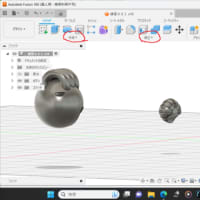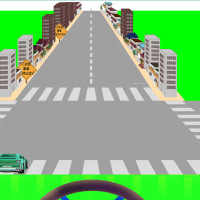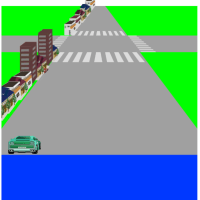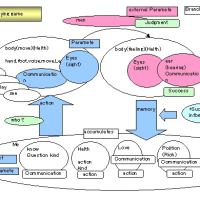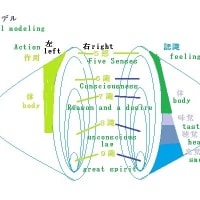0012「悪の因に十四あり。0012 `Aku no in ni jūyon ari.
「悪の因に十四あり。一に憍慢(きょうまん)、二に懈怠(けだい)、三に計我(けいが)、四に浅識(せんしき)、五に著欲(じゃくよく)、六に不解(ふげ)、七に不信、八に顰蹙(ひんじゅく)、九に疑惑、十に誹謗、十一に軽善(きょうぜん)、十二に憎善(ぞうぜん)、十三に嫉善(しつぜん)、十四に恨善(こんぜん)なり」
(Reading romaji)
`Aku no in ni jūyon ari. Ichi ni kyōman (kyōman), ni ni ketai (ke dai), san ni kei ga (kei ga), shi ni senshiki (senshiki), go ni jakuyoku (ja ku yoku), roku ni fu kai (fu-ge), nana ni fushin, hachi ni hinshuku (hinji ~yuku), kyū ni giwaku, jū ni hibou, jū ichi ni keizen (kyō zen), jū ni ni zōzen (zō zen), jū san ni shitsuzen (shitsu zen), jūyon ni konzen (konzen) nari'
(Literal translation)
悪を行う原因が十四あります。
There are fourteen causes of evil.
一に、驕慢(きょうまん:慢心)
First, pride (Kyoman: pride)
二に、懈怠(けだい:努力しないこと)
Secondly, neglect (Keidai: do not make an effort)
三に、計我(けいが:我を計る)
Third, Keiga: Measure me
四に、浅識(せんしき:浅い知識)
Fourth, shallow knowledge (shallow knowledge)
五に、著欲(じゃくよく:もろもろの欲望)
Fifth, greed (Jakuyo: various desires)
六に、不解(ふげ:理解を行わない)
Sixth, incomprehensible (Fuge: do not understand)
七に、不信(信じようとしない)
Seventh, distrust (do not believe)
八に、顰蹙(ひんじゅく:顔をしかめる)
Eighth, 顰 蹙 (Hinjuku: frowning)
九に、疑惑(疑い惑う)
Nine, suspicion
十に、誹謗(非難し謗る:誹謗中傷)
Ten, slander (slander)
十一に、軽善(きょうぜん:善を重く見ない)
Eleventh, light good (today: don't look at good seriously)
十二に、憎善(ぞうぜん:善を憎む)
Twelve, hate (Zenzou: hate good)
十三に、嫉善(しつぜん:善を嫉妬する)
To thirteen, 嫉善 (Shitsuzen: jealous the good)
十四に、恨善(こんぜん:善を恨む)
Fourteen, 恨善 (Konze do: blame the good)
(解説)(Commentary)
Ⅰ、悪の因と言っても、御書は仏法の意味で説明しているが、般的な因として考えることが出来る。
I. The cause of evil is explained in the meaning of Buddhist law, but it can be considered as a general cause.
(1)憍慢(きょうまん)とは、
・増上慢と同じ意味です。慢心。彼は自分を過信して、仏法を称えない。
(1) What is pride?
・ It has the same meaning as masochistic pride. Pride. He is overconfident in himself and does not praise Buddhism.
・一般的に言う。
人や法を自分を過信して疎かにすること。
・ Generally speaking.
Believing in yourself and neglecting people and the law.
彼は、国民をバカにしている。
He makes a fool of the people.
(2)懈怠(けたい)とは、
・仏道修行を怠けること。
(2) What is laches?
・ Neglecting Buddhist training.
・一般的に言う。
それは、人や法に従う努力をしないこと。
・ Generally speaking.
It is not trying to obey people and the law.
(3)計我(けいが)とは、
・それは、我かってな見方と同じ意味。自分勝手な考えで仏法を判断すること。
(3) What is Keiga?
・ It has the same meaning as my own view. To determine the Buddhism in the selfish idea.
・一般的に言う。
自分勝手(自分に都合の良い見方)で物事を考える事。
・ Generally speaking.
Selfish thing to think about things in the (good view convenient for yourself).
(4)浅識(せんしき)とは、
・仏法の道理がわからないのに、求めようとしないこと。
(4) What is Senshiki?
• Although the truth of Buddhism do not know, that it does not seek.
・一般的に言う。
それは、真理を求めないこと。
・ Generally speaking.
That is, do not seek the truth.
(5)著欲(じゃくよく)とは、
・欲望にとらわれて、仏法を求めないこと。
(5) What is greed?
・ Do not seek Buddhism because of your desires.
・一般的に言う。
それは、欲望に捉われて、本来の行いをしないこと。
・ Generally speaking.
It is to be caught in desire and not to do what you are supposed to do.
(6)不解(ふげ)とは、
・仏法の教えをわかろうとしないこと。
(6) What is incomprehensible?
・ Do not try to understand the teachings of Buddhism.
・一般的に言う。
それは、人や法を理解しようと努力しないこと。
・ Generally speaking.
It is not trying to understand people and the law.
(7)不信とは、
・仏法を信じないこと。
(7) What is distrust?
・ Do not believe in Buddhism.
・一般的に言う。
それは、信じようと心を開かないこと。
・ Generally speaking.
Don't open your heart to believe.
(8)顰蹙(ひんじゅく)とは、
・顔をしかめること。仏法を非難すること。
(8) What is Hinjuku?
・ Frowning. To blame Buddhism.
・一般的に言う。
嫌な感情を顔に表すこと。それは、人や法を非難すること。
・ Generally speaking.
Expressing unpleasant feelings on your face. It is to blame people and the law.
(9)疑惑とは、
・それは、仏法の教えを疑って、道に迷うこと。
(9) What is suspicion?
・ It is to doubt the teachings of Buddhism and get lost.
・一般的に言う。
人や法を疑い拒絶すること。
・ Generally speaking.
Doubting and rejecting people and the law.
(10)誹謗とは、
・仏法をそしり、悪口をいうこと。
(10) What is slander?
・ To disobey Buddhism and speak badly.
・一般的に言う。
人や法をそしり、悪口を言う。
・ Generally speaking.
Reproach people and the law and speak badly.
(11)軽善(きょうぜん)とは、
・仏法を信じている人を軽蔑し、馬鹿にすること。
(11) What is Kyozen?
・ To despise and make a fool of someone who believes in Buddhism.
・一般的に言う。
それは、善行を軽蔑し馬鹿にすること。
・ Generally speaking.
It is to despise and make a fool of good deeds.
(12)憎善(ぞうぜん)とは、
・仏法を信じている人を憎むこと。
(12) What is hatred?
・ Hate those who believe in Buddhism.
・一般的に言う。
人や法を憎むこと。
・ Generally speaking.
Hate people and the law.
ただし、悪は憎むべきであり、許容してはいけない。
However, evil should be hated and not tolerated.
(13)嫉善(しつぜん)とは、
・仏法の信者を善の根を恨むこと。
(13) What is "Shitsuzen"?
・ Resent the roots of goodness for Buddhist believers.
・一般的に言う。
善の根を憤慨すること。
・ Generally speaking.
Resent the roots of goodness.
(14)恨善(こんぜん)とは、
・仏道を修行する者をうらむこと。
(14) What is "Konzen"?
・ Grudge those who practice Buddhism.
・一般的に言う。
人や法を恨むこと。
・ Generally speaking.
Grudge the person and the law.
(15)悪の因にたいする一般的な印象。
1)悪の因を持つ人が多い。特に政治家は、自分よがりで都合のいいように物事を解釈する。
・人は、この悪の因を理解し自身を戒めなければならない。
(15) A general impression of the cause of evil.
1) Many people have a cause of evil. Politicians, in particular, interpret things in a way that suits them.
And human must commandments themselves to understand the cause of this evil.
(16)言葉に表すことは、先駆者の義務である。
漠然としたことでは、人は動かない。
「南無妙法蓮華経」とは、何か?それを明らかにする時である。
強く私は、実感する。
(16) It is the duty of the pioneer to express it in words.
Vague things don't move people.
What is "Namu_Myōhō_Rengekyo"? It's time to reveal it.
I strongly feel it.
解説終わり。
End of commentary.










